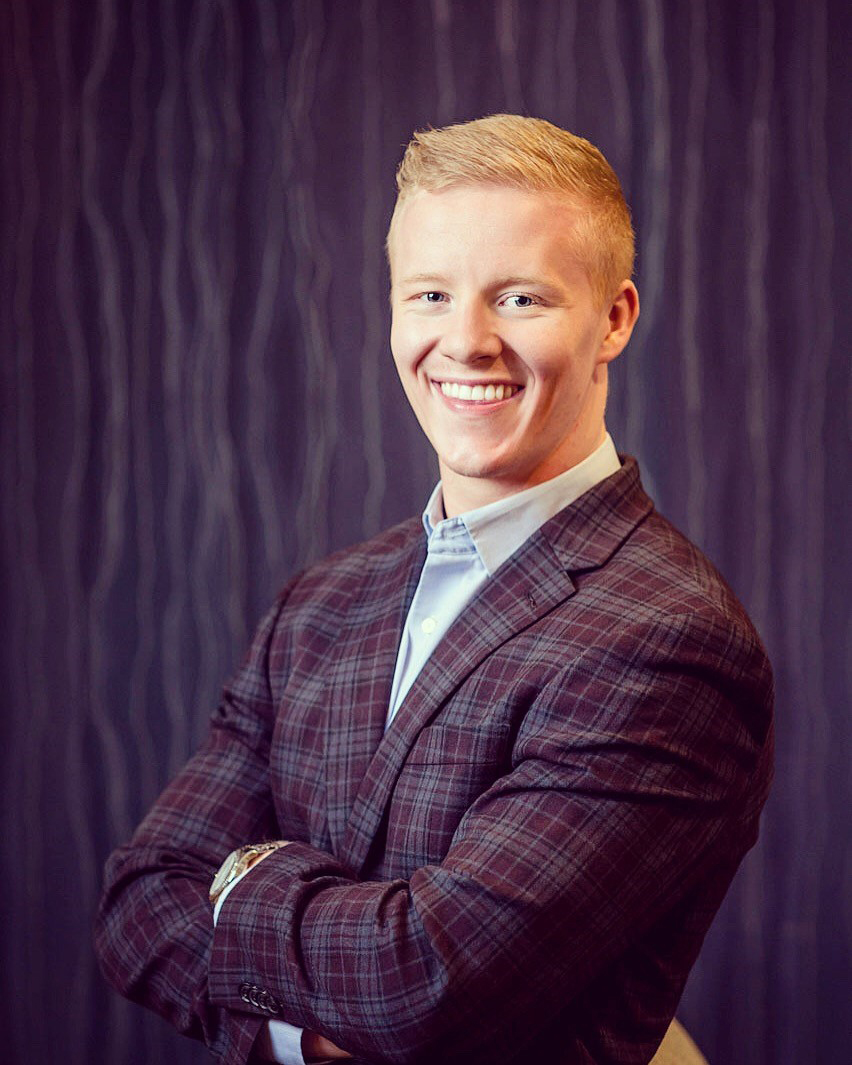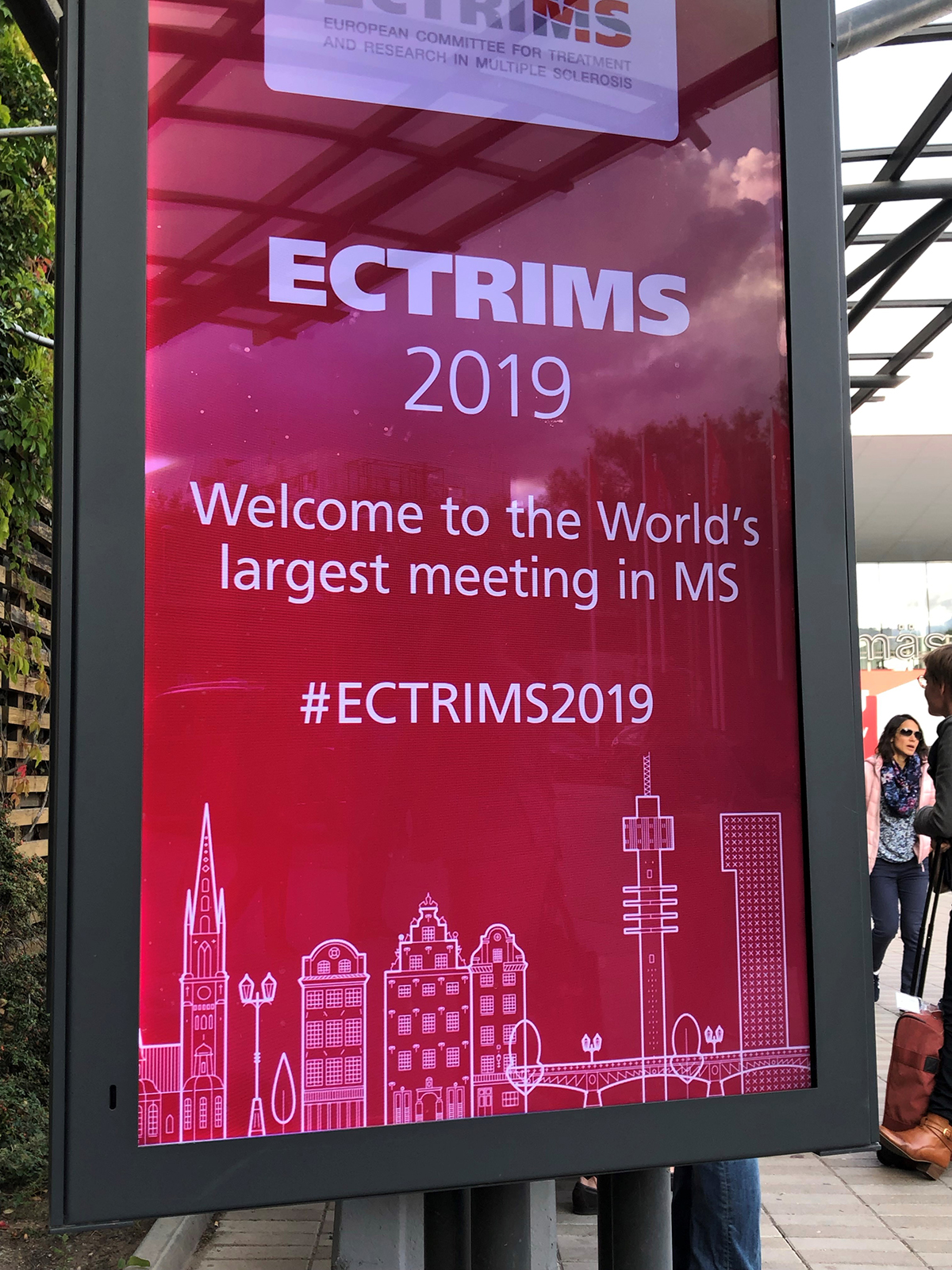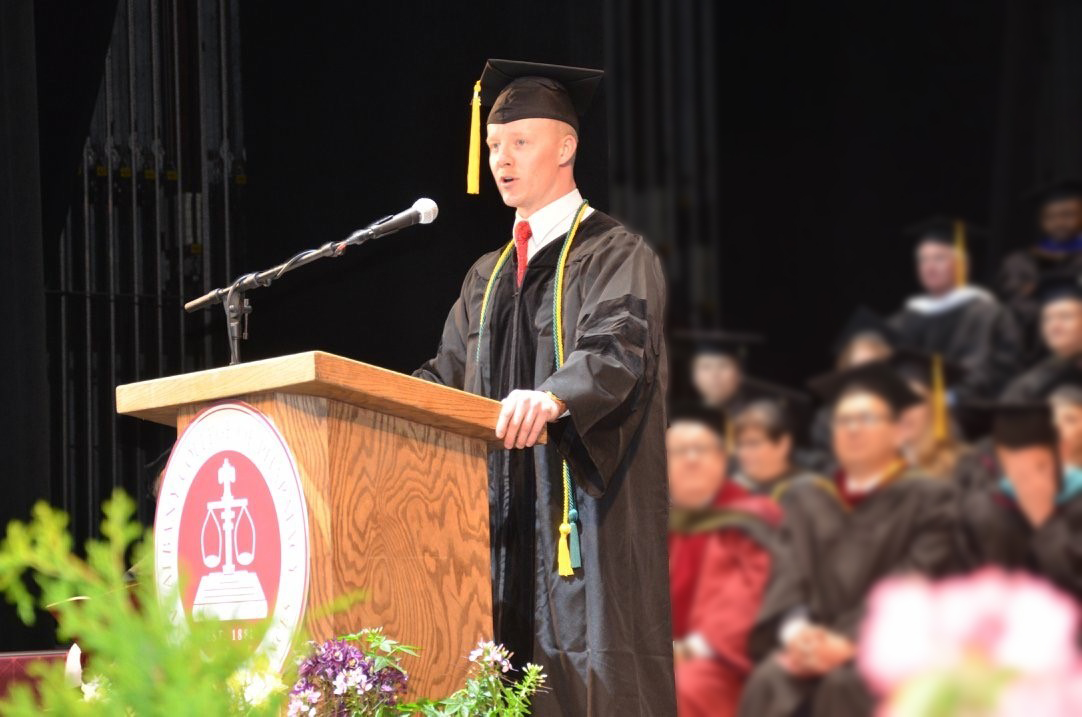Liam McGuey (2018)
Tell me about your path—was there a lightbulb moment for you?
 By my P2 year, I knew I was very interested in industry. I was mentored by Alisha Ahmed (2017), and soon after became involved in IPhO. During an IPhO networking event I met my future preceptor from Sanofi Genzyme, Jen Cardone, who is now a current MSL on my Multiple Sclerosis & Neurology MSL team. A number of ACPHS alumni helped me along my journey. Joseph Britt (2016), Sarwang Shah (2015), Ahmad Khan (2015), all provided their own unique mentorship throughout the fellowship hunt process. Once learning and becoming more educated on the Medical Science Liaison (MSL) path, I was immediately interested. You essentially are the medical external face of the company, and your job is to provide unbiased scientific data on your products reactively, and disease state education on groundbreaking science proactively. Additionally, you can help support investigator-sponsored studies, as well as other post-marketing studies. I am specialized in Multiple Sclerosis (MS) and Neurology, and ultimately work with Sanofi Genzyme’s two marketed MS products, as well as our pipeline molecules for MS, Parkinson’s Disease, and other neurologic diseases. Building and maintaining relationship is key to the job, and proving your value early to prove you can help optimize their patient care. You are also exposed to other disease states as well internally. For example, Sanofi is currently studying one of our RA products for severely ill COVID-19 patients. This issue especially highlights the ways that industry can help the world, and sheds light on the positive sides of the industry in contrast to the outdated and traditional view of pharmaceutical companies.
By my P2 year, I knew I was very interested in industry. I was mentored by Alisha Ahmed (2017), and soon after became involved in IPhO. During an IPhO networking event I met my future preceptor from Sanofi Genzyme, Jen Cardone, who is now a current MSL on my Multiple Sclerosis & Neurology MSL team. A number of ACPHS alumni helped me along my journey. Joseph Britt (2016), Sarwang Shah (2015), Ahmad Khan (2015), all provided their own unique mentorship throughout the fellowship hunt process. Once learning and becoming more educated on the Medical Science Liaison (MSL) path, I was immediately interested. You essentially are the medical external face of the company, and your job is to provide unbiased scientific data on your products reactively, and disease state education on groundbreaking science proactively. Additionally, you can help support investigator-sponsored studies, as well as other post-marketing studies. I am specialized in Multiple Sclerosis (MS) and Neurology, and ultimately work with Sanofi Genzyme’s two marketed MS products, as well as our pipeline molecules for MS, Parkinson’s Disease, and other neurologic diseases. Building and maintaining relationship is key to the job, and proving your value early to prove you can help optimize their patient care. You are also exposed to other disease states as well internally. For example, Sanofi is currently studying one of our RA products for severely ill COVID-19 patients. This issue especially highlights the ways that industry can help the world, and sheds light on the positive sides of the industry in contrast to the outdated and traditional view of pharmaceutical companies.
Was there a faculty or staff member from ACPHS who was a special mentor to you?
Dr. Ray comes to mind immediately, and he was never actually my professor until my P3 year for an elective course. During my 2nd year of undergrad he suggested that I should think about attending Medical school, but I ultimately decided not to take that route. At the end of the day, he supported my decision and I am so happy where I eventually ended up. He encouraged me to follow my heart, and was a huge force in helping me create the ACPHS hockey team (with the help of a few others – Matt Morgia, Wes Aubin, Will Kasper, and Colin Hilt). He introduced me to a faculty member he knew loved the game, Mr. Jeff Dufour, who eventually I met and became our head coach. He was also instrumental in creating and developing the hockey team, and consider him to be a huge piece of my successes. Academic success is one thing, but he helped me become a more well-rounded student and a better person. Dr. Ray and Jeff Dufour are invaluable to ACPHS!
What surprised you the most when you got into the field?
The biggest surprise was the inconsistency in how doctors practice in the real-world. Some are very up-to-date with the latest and greatest science, and some are definitely more stuck in their ways. However, being able to read and understand an individual and tailoring your conversation is key to being an MSL. At the end of the day they are making the final clinical decision, but providing them with the most accurate and groundbreaking data is important for them to make that most informed decision. Often times they are so busy treating patients and conducting their own research they do not have time to learn about the newest science at national and international congresses, and that is another way we can provide education and value to them.
What advice would you give to someone who is interested in industry or in becoming a MSL?
 It is definitely not for everyone, but if it is for you, it can be such a flexible and rewarding career. One must be comfortable traveling, meeting new people, and building new relationships. It is different than much of what you learn in pharmacy school. For example, we are always taught and asked what we recommend as pharmacy students in school. Yet, as an MSL your job is to provide data, but can never recommend anything as it is the clinician’s final say. If you are interested, reach out to past students who are in industry or who are MSLS and get any experience you can. If you can land any field-ride experience – that will go a very long way in interviews later on. Additionally, don’t be too intimidated if you feel you don’t you are prepared to enter this field. That is what a fellowship is for, but in school you can prepare through industry rotations, internships, IPhO, and any industry experience you can network and obtain outside of school. I have traveled more in my two years of fellowship than the rest of my life combined, and even ended up at a conference in Stockholm, Sweden. Learning from the top experts in their field, from individuals across the globe all driven towards the same purpose, is truly remarkable.
It is definitely not for everyone, but if it is for you, it can be such a flexible and rewarding career. One must be comfortable traveling, meeting new people, and building new relationships. It is different than much of what you learn in pharmacy school. For example, we are always taught and asked what we recommend as pharmacy students in school. Yet, as an MSL your job is to provide data, but can never recommend anything as it is the clinician’s final say. If you are interested, reach out to past students who are in industry or who are MSLS and get any experience you can. If you can land any field-ride experience – that will go a very long way in interviews later on. Additionally, don’t be too intimidated if you feel you don’t you are prepared to enter this field. That is what a fellowship is for, but in school you can prepare through industry rotations, internships, IPhO, and any industry experience you can network and obtain outside of school. I have traveled more in my two years of fellowship than the rest of my life combined, and even ended up at a conference in Stockholm, Sweden. Learning from the top experts in their field, from individuals across the globe all driven towards the same purpose, is truly remarkable.
What was it like for you seeking a fellowship?
My biggest advice towards students and those applying to fellowships is a bit cheesy, but true: be yourself. Seriously, being genuine goes a very far way as most candidates do not do this. Think about the interview as a two-way interview, and remember that you also want to be able to be yourself over the next 2 years of your fellowship. In doing so, you will find a team that you mesh with well and that you want to work for. Definitely prepare your CV in terms of industry rotations, internships, IPhO events, and anything else professionally or personally that makes you stand out. What makes you unique? I can honestly say that I was asked about starting the hockey team at ACPHS in every single one of my midyear interviews (which was about 10 positions – over 25 interviews). I still remember our first game against Skidmore that ultimately landed us a spot in the UNYCHL club hockey league. Over two buses came of ACPHS students (and to meet rowdy Skidmore fans) – shout out to Liz McGarry! It was an amazing time, and although we ended up losing, I still remember the ACPHS hockey chants and the comeback that we almost completed. Fun times, and I think those are critical to students who are in such a difficult academic program.
Prior to midyear, prepare for the process itself and prepare as much as you can. Study the companies, the products, and the fellows/preceptors you are applying to. You will never feel fully prepared, but once you come to Midyear your pre-work and genuine passion to get into industry will come out. Lastly, network as much as you can. Meet people and travel. Learn about the different functional areas within industry to see what best fits you and your professional goals.

What’s it like being on the other side of things as a preceptor?
As someone who is now on the other side of the ‘table’, I’m looking for someone who has done their homework, and who will also be a good ‘fit’ for our team. I actually just precepted Dmitri Aldershoff of ACPSH (2020), and he came prepared, did a great job, and made some lasting connections. We interviewed 68 applicants for 1 spot this year at Midyear, and Dmitri unfortunately did not land this fellowship (although extremely close), but I knew he would land one somewhere else from his work and experience at Sanofi Genzyme. He ultimately ended up as the MSL fellow, also in Neuroscience, at Genentech. We also hold networking days for MCPHS, which is similar to the Rutgers FIND day, which are both great events to learn about industry and network!
I’m always willing to help students who are on their way up in any way I can, and pay it forward to others like I had done for me. I am also involved in IPhO as the National Student Development Committee, which our biggest project is running the VIP Case Competition. This year we just reviewed 59 pharmacy school chapters final video presentations and selected 3 finalists who will be nationally recognized and receive financial compensation. This project is a great way to gain exposure to the core industry functional areas, and I encourage all interested students to participate.
At the end of the day, if you truly want to get into industry, I know you can. A great fact I always remind students is that 80% of PharmDs in industry did not complete fellowships. This path is increasing in popularity, and competitiveness, but if at first you don’t succeed – try again! There are many post-graduate opportunities such as contracting jobs, medical information starting positions, and late-breaker fellowships that come out in late-winter and Spring.
Thank you Liam, you are truly living our core values!

